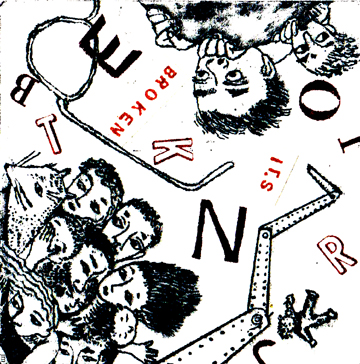‘Safe Third Country’ Eh: Canada’s Treatment of Refugees

Canada’s “Safe Third Country” agreement regulates Canada’s treatment of refugees entering Canada from the States. It’s currently under review. There’s not much need to ask why.
Initial reports that nearly 1500 among the unaccompanied migrant children detained after entering the U.S. from Mexico, were unaccounted for, referred only to three months of tracking. 6000 presents a realistic number for the year. The losses are explained by the Office of Refugee Resettlement which claims it’s no longer legally responsible for the children once a sponsor is found for them, and that the kids aren’t really missing. Simply their sponsors don’t answer the phone when the ORR calls. An immigration advocacy worker explains that families often include those without proper paperwork so people are afraid to answer the phone because ICE terrorizes them (“Exclusive: US officials likely lost track of nearly 6,000 unaccompanied migrant kids,” Franco Ordoñez & Anita Kumar, June 19, 2018, McClatchy).
Faults of the old system are extended to the new where under President Trump’s “zero tolerance policy,” very young children have been stripped from their parents’ care. On June 18 the United Nations High Commissioner for Human Rights Zeid Ra’ad al-Hussein condemned the Trump administration’s policy of separating young children from their parents. If they are thought to have entered the country illegally the children and parents are incarcerated in separate detention centers, the names of which Wikipedia recently added to its list of concentration camps. In response to international and domestic outrage (both Canada’s Prime Minister Trudeau and Britain’s PM Theresa May acknowledged Trump’s policy is “wrong”) against this cruelty, the U.S. President rescinded by executive order June 20th the policy of separating children from their parents for detention. But there are now nearly three thousand children in custody without their families or the paperwork to return and no one seems sure yet that they will be reunited.
The “Safe Third Country” agreement with the U.S. allows Canada to reject asylum seekers entering from the States on the grounds that they should have applied for asylum in the States. Since the U.S. is considered a “safe country” it’s almost impossible for Americans to make successful refugee claims in Canada. The agreement also allows Canada to return refugees to the States, even when the U.S. then returns them to the dangers of countries they left.
The agreement has become a clear hazard to refugees running for their lives. And it’s in opposition to the United Nations treaties, Protocol relating to the status of Refugees and Convention relating to the status of Refugees which were clearly intended to save their lives. The U.S. has refused to place into law or policy principles it subscribed to in signing the Protocol (which substantiates the Convention). Under these treaties the U.S. can’t arrest or detain an asylum seeker if the seeker is in danger back in his home country, and this is regardless of how he or she entered the U.S. if they present themselves immediately to authorities (Convention relating to the Status of Refugees, Article 31).
Since the U.S. has subscribed to this principle it prevents its application through the use of force, ie. enforcing U.S. Code § 1325 – Improper entry by alien, illegal government policies such as “zero tolerance”, or immoral lawyers. The enforcing of Code § 1325 with arrest and detention for this misdemeanor, falsely criminalizes refugees.
The U.S. isn’t a “Safe Third Country” with respect to any refugees or migrants who have escaped to Canada. The Canadian government’s attempt to maintain the agreement has suffered historical pressure before when there have been obvious threats to the safety of immigrants, such as the mass arrest of Muslims after Sept. 11, 2001. The U.S., which has withdrawn from the International Criminal Court in an attempt to save its leaders from charges related to contemporary wars, has presented the world a warning by its June 19th announcement of withdrawal from the United Nations Human Rights Council.
At departure both ambassador to the UN Nikki “We’re-taking-names” Haley and Secretary of State Mike Pompeo, offered insulting appraisals of the organization. The U.S. ambassador referred to the Council as “a political cesspool of bias”. In October 2017 the U.S. announced its withdrawal from the United Nations Educational, Scientific and Cultural Organization (UNESCO) where it was 550 million dollars in arrears of payments due. UNESCO is one of the principle funders of education related to genocide studies. In both withdrawals the U.S. cited the organization’s “bias” against Israel.
The Human Rights Council’s precepts of Human Rights and treaties are written into Canadian law and govern Canadian lives. They are often not effected in American law and not available to even Americans in need. In leaving the Human Rights Council the Trump administration is making some show of rejecting the principles of law and ethics which form the Human Rights Council’s agenda, reports, information gathering and counsel.
Canadian officials who insist on the “Safe Third Country” agreement would be supporting crimes against children, refugees and migrants. The agreement should be ended.
*
This article was originally published on Night’s Lantern.
Featured image is from Julie Maas, from folio 13, Ottawa: Editions Gerald and Maas, 2010.

